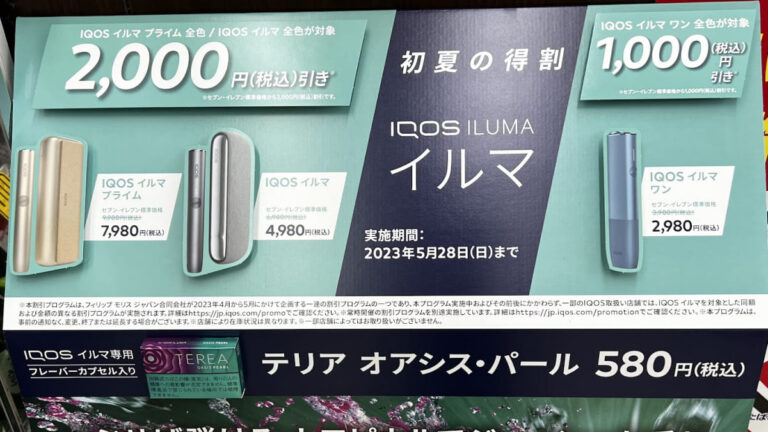iQOSイルマ
(税込) 送料込み
商品の説明
電子タバコ人気モデル···IQOS ILMA
赤色のイルマです!
1箱しか吸ってなくて次の色を買ったので出品します!
箱、充電コード全部揃ってます!商品の情報
| カテゴリー | メンズ > 小物 > タバコグッズ |
|---|---|
| 商品の状態 | 未使用に近い |

アイコス イルマ(IQOS ILUMA)の通販 | IQOS 公式オンラインストア

IQOS イルマ全種類の違いを解説 IQOS イルマ プライム、IQOS イルマ

SALE/77%OFF】 iQOS イルマ nmef.com

最も iQOSイルマ ecousarecycling.com
74%以上節約 IQOSイルマ タバコグッズ | mountaineerins.com

SALE/77%OFF】 iQOS イルマ nmef.com

当店限定販売 IQOS イルマ ecousarecycling.com

全20種類レビュー! 「アイコス イルマ」専用タバコスティック「TEREA

期間限定特価!☆メーカー価格より60%OFF!☆ IQOSイルマ機械 - 通販

逆輸入 iQOSイルマ カスタム タバコグッズ - www.nisi.net

ボトムスス単品 【美品】iQOS イルマ - 通販 - dhriiti.com

SALE/77%OFF】 iQOS イルマ nmef.com

74%以上節約 IQOSイルマ タバコグッズ | mountaineerins.com

ふるさと割】 IQOS イルマ agapeeurope.org

カテゴリー❄ IQOSILUMAprime iQOSイルマプライム lcmTN-m21465153683

94%OFF!】【94%OFF!】IQOSイルマ タバコグッズ | esperanzaqc.com

上品 iQOSイルマ savingssafari.com

IQOS イルマ シリーズが最大2,000円割引 | IQOS(アイコス)公式サイト

数量限定】IQOS イルマ WE 2023 限定モデル | IQOS(アイコス)公式サイト

IQOS イルマ プライム オーロララップカバー ナイトシェード

税込?送料無料】 iQOSイルマ ecousarecycling.com

送料無料/プレゼント付♪ iQOS イルマ 限定 - 通販 - www.dhriiti.com

フラワーB ブルーグレイ iQOSイルマ 本体 スティックなし - 通販
アイコス 新型 2021 イルマ プライム アイコス イルマプライム(カラー

SALE/69%OFF】 iQOS イルマ ONE 限定 ecousarecycling.com

SALE/77%OFF】 iQOS イルマ nmef.com

新型「IQOS ILUMA」はブレードレスで汚れない。スティックも新仕様

楽天市場】アイコス イルマ 純正リング カスタム スワロフスキー 最新

選べる配送時期 アイコス iQOS イルマ本体 オアシス - 通販 - dhriiti.com

2022公式店舗2022公式店舗
IQOS イルマ プライム キットIQOS

74%以上節約 IQOSイルマ タバコグッズ | mountaineerins.com

IQOS ILUMA(アイコス イルマ)を知る | IQOS(アイコス)公式サイト

サービス IQOS イルマ veteranartconnection.com

限定品】 iQOS イルマ ネイビー agapeeurope.org

アイコス イルマ ワン(IQOS ILUMA ONE)の通販 | IQOS公式オンライン

IQOS イルマ ワン WE 2023 モデル

与え IQOSイルマ savingssafari.com

春先取りの iQOSイルマONE ecousarecycling.com

SALE/77%OFF】 iQOS イルマ nmef.com

8/5最新】アイコスイルマ/ワンのコンビニ本体割引・種類・キャンペーン

商品の情報
メルカリ安心への取り組み
お金は事務局に支払われ、評価後に振り込まれます
出品者
スピード発送
この出品者は平均24時間以内に発送しています














